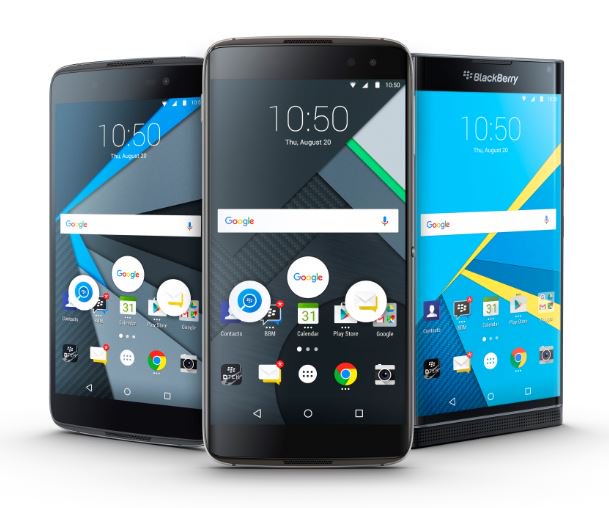BlackBerry is releasing its third Android smartphone and the first since it confirmed it was quitting the mobile business in favour of a hardware licensing strategy.
The BlackBerry DTEK60 is manufactured by TCL, the same as the DTEK50, and is described as a device that has full access to the Android ecosystem while supporting the security and productivity features that once made BlackBerry the de facto industry standard for enterprise mobility.
The 5.5 inch device has a built-in fingerprint sensor capable of storing up to five encrypted fingerprints, an intelligent keyboard, pre-installed BlackBerry Hub and a ‘convenience key’ for rapid access to most use applications.
Read More: BlackBerry’s smartphone exit will mean little to most
BlackBerry DTEK60
 It has a 21 megapixel rear camera, supports MicroSD cards up to 2TB and promises 24 hour battery life after unspecified “mixed use”.
It has a 21 megapixel rear camera, supports MicroSD cards up to 2TB and promises 24 hour battery life after unspecified “mixed use”.
Like Google does with its range of Nexus and Pixel smartphones, BlackBerry will issue patches for Android as soon as possible and also comes equipped with DTEK software which lets users monitor their handset and applications for any potential privacy violations.
There’s also hardware level security, Android OS hardening, file encryption and easy integration with BlackBerry’s enterprise mobility management (EMM) software, Android for Work and Google for Work.
The DTEK60 costs £475 and is available to order from today.
“With the DTEK60, BlackBerry continues to focus on our strengths: state-of-the-art software and security solutions,” said Ralph Pini, chief operating officer and general manager of mobility solutions at BlackBerry. “When you see our logo it means security, from our class-leading enterprise software to devices secured by BlackBerry software.”
BlackBerry switched from its proprietary BB10 OS to Android last year but this failed to revive the once dominant Canadian firm’s fortunes, despite critical acclaim. The unit had been unable to become profitable and CEO John Chen decided to pull the plug on direct manufacture and instead focus its effort on software, services and the fledgling market for the Internet of Things (IoT).
Quiz: What do you know about BlackBerry?





